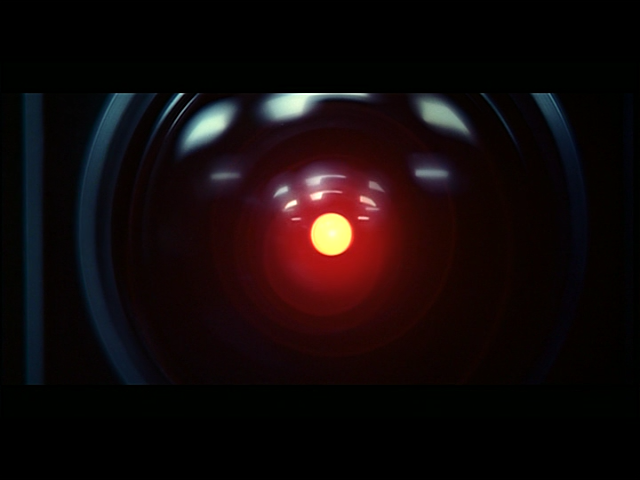

I can’t believe I forgot about this, but if you really want to explore the question of future people reconstructing the past through AI, watch the movie Marjorie Prime, which is explicitly about this question.
was RickRussellTX @ reddit


I can’t believe I forgot about this, but if you really want to explore the question of future people reconstructing the past through AI, watch the movie Marjorie Prime, which is explicitly about this question.


Yeah, almost nothing. SMS is a utility tool for me. I doubt anyone will ever care that my wife wanted more zip-lock bags.
You’d get a better picture of me through old USENET posts (which are unencrypted, of course), or reddit or web forums or Lemmy (all of them unencrypted, I suspect). Good luck, future people.


We must have VERY different opinions of what our shopping habits or e-mails say about us. My email wouldn’t tell you jack squat.


Future people do not give a damn about your shopping, your Visa number SSL’d to Cherry-Popping Hot Grampa Action websites that you visit, nor password-protected partitions, no matter how illicit.
And this, it would seem, is your saving grace: the amazing haste of people to forget your name, your face, your litanous list of indefensible indiscretions.
They’ll glance you over, I guess, and then for a bare moment you’ll persist to exist; almost seems like you’re there, don’t it? But you’re not. You’re here. Your name will fade as Front’s will.


That’s a fair question, but I think the answer is obvious. Until the invention of photography, literally the only formal records we had of past events were the things people bothered to write down, paint, or sculpt. And of those, we only have the arts and written records that actually survived. So to find out information about the distant past, we have little choice but to extrapolate from artifacts, dig up old buildings, etc. The artifacts and records that we do find have outsized influence on our understanding of the past, compared to all the information and details that have been lost, which can literally never be recovered.
From the 21st century onward, that relationship is inverted. Any hypothetically useful unit of information about the past will be recorded hundreds or thousands of times, and the useless units of information will outnumber the useful units by many orders of magnitude. Sure, if someone proves to be exceptionally notable, there may be some value in decrypting their past Amazon purchases or cracking the encrypted SSD they left behind. But that’s going to be the exceedingly rare exception, rather than the rule, especially when the world’s data stores are crammed with news articles, photos, videos, interviews, blog posts, reddit posts, journals, and non-encrypted records that appear to tell a complete story of the lives of notable people, and for that matter the day-to-day lives of regular folk.
And that SSD may be every bit as exciting as the Hunter Biden laptop hard disk… that is, barely exciting at all, and full of such routine and irrelevant information as to be an almost pointless exercise in data forensics.


In the final analysis, nobody cares what Harold Q. Dumpington bought from Amazon in the week of June 4, 2017. That information is technically still stored in Amazon’s databases, but (1) Amazon already has access to it, so encryption is a sort of non-issue, and (2) nobody cares.
The reality is: socially engineering a password or setting up a “man in the middle” attack in a coffee shop WiFi is a hell of a lot easier than attacking encrypted data, but even those attacks are relatively rare, and usually executed against corporations with money. As tempting as it would be for some hacker to get into Jennifer Lawrence’s e-mail or Chris Pratt’s Amazon purchase history, it seems that it’s really not worth the effort to anybody, except in some edge cases.
Putting aside the whole question of what people might want to feed into an AI, why would anybody want that data AT ALL?
MC Frontalot has a song about this, Secrets from the Future.


I think you vastly overestimate the future’s interest in your life.
“An entire data center” is 8 rented racks in two enterprise data centers (4 racks in each). They’re paying $60K/month for racks, cooling, and location.